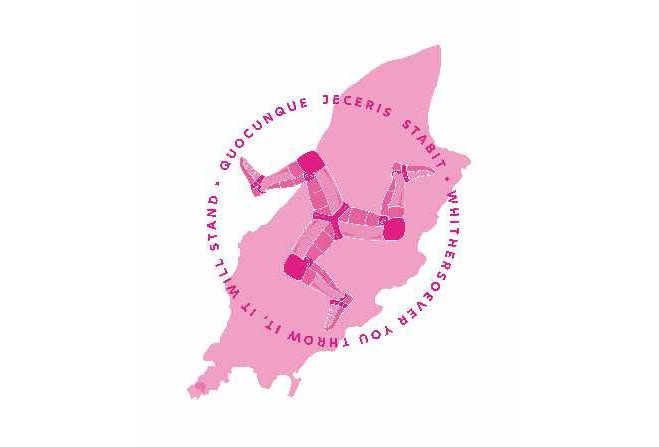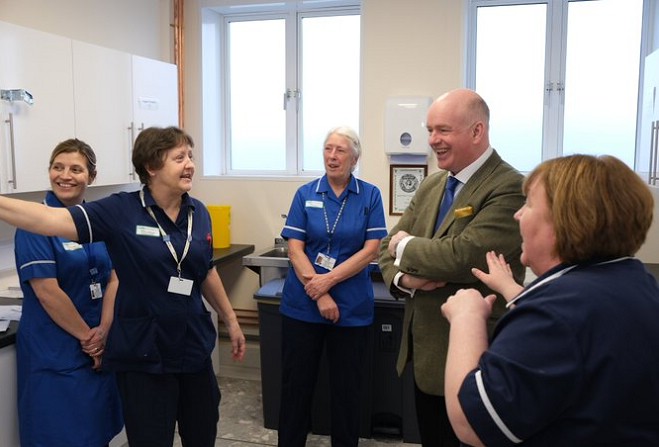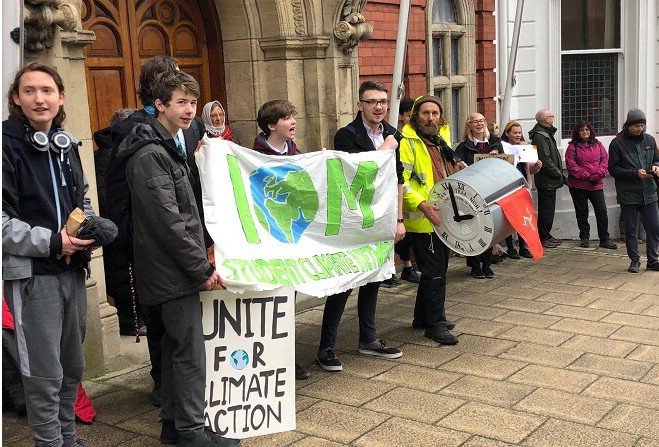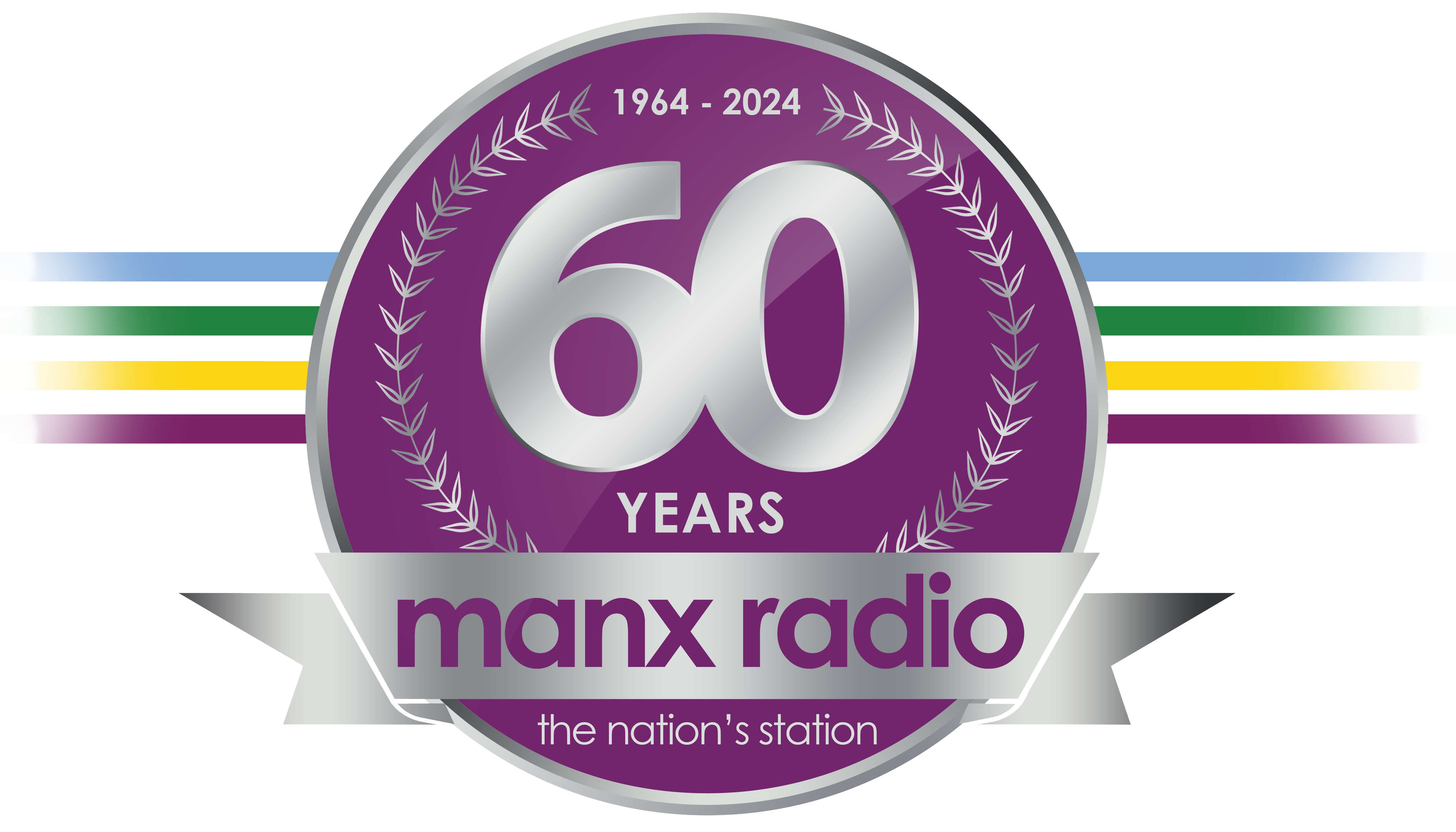
Covid cost, revenue lost and pensions boost.
Covid-19 has radically altered what the treasury minister was expecting to unveil in his final budget, the last of a five-year-plan committed to at the start of this administration.
Bearing the cost of the pandemic has put paid to plans to continue policies on personal tax allowances and other benefits, with Alf Cannan instead focused on ‘steadying’ public finances.
That means little in the way of new spending, bar investment in health, with a focus on finishing major schemes which have already been approved.
It’s been described as a ‘one year budget’, with uncertainty about the future making long-term forecasting beyond that tough. In more certain times, Treasury would normally present provisional budgets into the next four years.
The five-year plan’s overall aim of growing reserves, rather than taking out of them, remains ‘within touching distance’, according to the treasury minister.
Factoring in the Covid disruption, it’s hoped a net surplus will be achieved by the year 2024/25.
Manx Radio takes a look at eight highlights of this year’s pink book;
1 – Financial cost of Covid estimated at over £200 million
Treasury’s prediction for the cost of the pandemic over this financial year stands at £208 million, with a revenue deficit of around £74 million.
Forecasts show take from income tax is down £23 million, VAT and duty down £45 million, and over £20 million in other areas. Covid has had less of an impact than first feared, but the hit is still considerable.
To fund Covid support schemes, £71 million was drawn out of the National Insurance Fund, while spending across government has increased. The plan is to dip into reserves (which stand at £1.6 billion) again next year until taxation revenues recover.

Chief Minster Howard Quayle visits the vaccine hub at Ronaldsway Airport.
2 – Investment in public services, namely Manx Care
Bids from departments worth a total of £23.2 million have been accepted by Treasury in this budget. £15.4 million of new money is going to the Department of Health and Social Care, including £8 million to address a deficit in the payroll budget.
Much of the remainder goes towards setting up Manx Care, a new ‘arms -length’ delivery organisation for health and social care services on the Island, due to come into operation in April.
The Department of Infrastructure will get £4.9 million, mainly because it lost out in income at the airport and sea terminal during the pandemic. It’s also receiving £500k to set up a ‘floods division’.
3- Extra spending to deal with climate change impact
There’s an extra £5 million going into the climate change mitigation initiatives fund, which stands at £10 million after money was carried forward from the last budget.
An environmental protection revenue fund of £5 million is available, with the Department of Infrastructure’s climate change adaptation scheme to receive £6.25 million. Of that figure, £2.25 million will go on flood defences.
Government says it’s committed to achieve net zero carbon emissions by 2050.

Student climate protestors call for action outside the Tynwald buildings.
4- Pensions go up, small increase in welfare benefits
The Manx and Basic state pensions are both to increase by 2.5 per cent under the triple lock guarantee that funds would not lose value in real terms.
It means the Manx state pension will increase from £191.35 per week to £196.14 per week and the rate of a full basic state retirement pension will go up by £3.35 a week, to £137.60 per week.
Nursing care contributions will rise 15.6 per cent, while jobseekers allowance, incapacity benefit, carers allowance and bereavement support are to go up 0.5 per cent.
Inflation was negative during Treasury’s reference point in September and many rates have remained at the same level. Civil service is pay is to rise by 1 per cent, at a cost of £3.6 million.
5- £90 million still available to fund economic recovery
The £100 million Economic Recovery Fund was set up in the mid-year ‘purple book’ to boost the Manx economy amid a turbulent time.
So far, it’s paid out £1.4 million to accelerate the rollout of fibre broadband, £3 million on higher education opportunities at University College Isle of Man, and £1.75 million on the Manx Restart Scheme, an initiative to reduce unemployment.
It’s estimated £10 million will be paid out of this fund by the end of March, with government expecting a further £40 million to be dished out in the next financial year.
6- Reserves bounce back after market uncertainty
The current market value of our reserves stands at £1.6 billion, which is roughly where it was before the pandemic.
Investments took a £200 million nose dive when Covid spread in March last year, but strong returns since then have seen reserves climb back to almost their pre-virus state.
Government’s cash at the bank has reduced by £144 million, but last year Treasury took out a borrowing facility of up to £250 million with a consortium of banks to mitigate this.
7- ‘Bow wave’ of unspent and undelivered projects leads to capital programme rethink
The government says its focus will be on finishing schemes that have already been approved, including Douglas Promenade, the Liverpool Ferry Terminal, and the care facility at Summerhill.
There’s also going to be a rethink of how capital projects, ‘one-off spends’ such as infrastructure projects, are voted on, paid for and managed.
A new method of financing projects through a capital finance reserve is proposed in the budget to improve clarity of revenue and capital spending choices. It’s intended to be more flexible, based on assessed need not past spend and to make it clearer to politicians what they're voting on.
Meanwhile, there’s to be a new central delivery body for major or complex projects, to manage how they’re delivered over the next financial year.
It’s going to sit in the Cabinet Office, and oversee any capital schemes costing over £3 million.

Work on the delayed promenade regeneration scheme
8 – No tax rises
There’s been no change to the Island’s taxation policy, and the national insurance holiday scheme for new employees will continue. Allowances also remain unchanged at this time.
Treasury has forecast that income tax take will reduce in the next financial year by 11 per cent due to the effect of the pandemic on corporate profits.
Vaccines and the economy’s ‘resilience’ leave government expecting tax income to go up 5 per cent per annum in the next two years.


 Rising UK mortgage rates unlikely to be reflected in the Isle of Man says local advisor
Rising UK mortgage rates unlikely to be reflected in the Isle of Man says local advisor
 RGS holds 'simple lockdown drill'
RGS holds 'simple lockdown drill'
 Publish date of Island housing study still not known
Publish date of Island housing study still not known
 Port Erin man appears in court over hidden camera allegations
Port Erin man appears in court over hidden camera allegations
 Peel Commissioners says it will be objecting to the North and West Area Plan
Peel Commissioners says it will be objecting to the North and West Area Plan
 Bishop's vote Bill goes to LegCo
Bishop's vote Bill goes to LegCo
